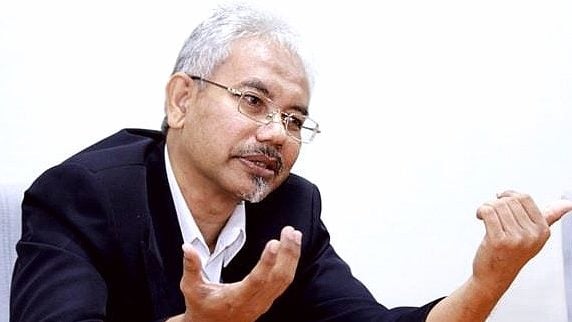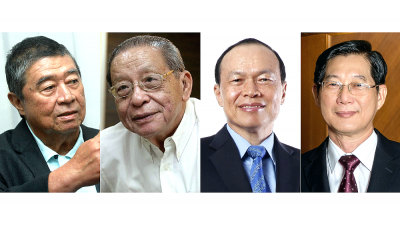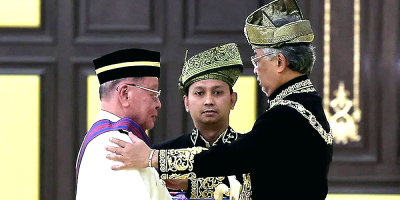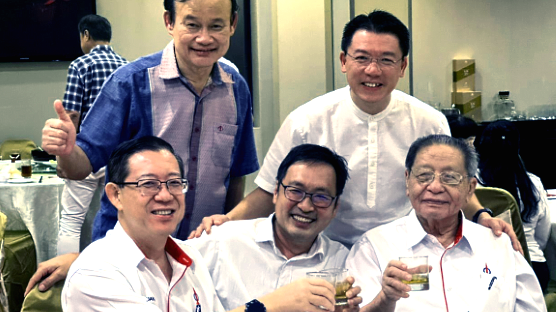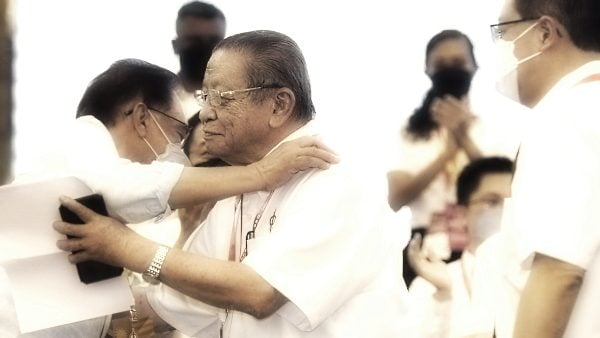By Chong Lip Teck, Sin Chew Daily
Kee Thuan Chye’s latest book Lim Kit Siang: Malaysian First (Vol One: None but the Bold has just hit the market, and he has wanted me to write a review of the book for publication on Chinese newspapers.
It is hoped that with the introduction from me, more readers, especially the Chinese-speaking, will know about this book.
Currently this book is published only in English and thus, many Chinese readers may stay away even though they are interested in the topic.
However, given Lm Kit Siang’s dramatic political experiences and the current political situation in the country, I believe this book will still arouse the interest of some readers.
How would a book that lies idle on the book shelf be able to command the attention of passersby and get them to browse it? Sure enough cover design, title and the author are crucial factors, but there is another key element that should steal the attention of potential readers: it is a memoir of Lim Kit Siang!
Everything depicted in this book about Lim Kit Siang — his exceptional deeds, political struggles, how he nurtured DAP into a formidable party that at one point was a component of the government – has been a reflection of the evolution of the country’s democratic politics.
As such, this book is veritably a memoir of Lim Kit Siang, and a narrative of Malaysia’s political development history!
The title of the book has said it all, and it is not hard to guess who will actually grab a copy of it: supporters of Lim Kit Siang and DAP members or supporters, political historians, any reader with a keen interest in the country’s political issues, and perhaps even rival party supporters who wish to fish for some valuable information from the book.
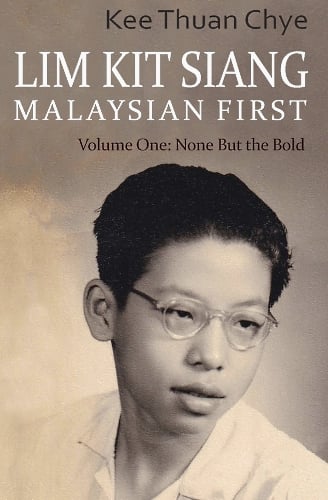 I am not a fan of Lim Kit Siang, nor a staunch supporter of any specific party, but if I happen to chance upon this book at a local bookstore, or read about it in media reports, I think I should have the obligation to buy and read it, in my capacity as someone in charge of the editorials in a mainstream newspaper.
I am not a fan of Lim Kit Siang, nor a staunch supporter of any specific party, but if I happen to chance upon this book at a local bookstore, or read about it in media reports, I think I should have the obligation to buy and read it, in my capacity as someone in charge of the editorials in a mainstream newspaper.
Having been a long-time observer and commentator of Malaysian politics, I feel that this book should make it to my “must read” list. But if you are just an ordinary reader who have specific preferences for what to read, then just exercise your own right to choose!
When the author Kee personally handed over the book to me and requested me to introduce the book to my readers, I naturally found it hard to decline.
Kee is an indisputable storyteller who writes in an easy-to-understand English that nevertheless boasts a charming linguistic flair. I have read some of his books before and I must agree that he is one of very few English writers in this country that totally deserves my respect.
Ever since the very first page of Lim Kit Siang, the author has managed to set an electrifying tempo in relating the stories of one of the nation’s most legendary political figures. Every chapter exploits a major domestic event as introduction before going into the deeds of Lim Kit Siang himself. This is then followed by the convoluted relations between DAP and relevant political events in the country, before concluding in a moral that could be drawn from what he or his party did.
Such an unusual style in writing appeals tremendously to me as an ordinary reader, because it is not telling the stories of Lim Kit Siang or DAP in a tedious manner. Every chapter incorporates the author’s interviews with people from different political parties and therefore his writing to a certain extent is deemed objective, at least as far as possible, given the fact this whole book is about one single man, and it is acceptable for him to give ample coverage to what Lim Kit Siang has done, from the day he came to this world to being a veteran leader in Malaysian politics, how he grew DAP, fought alongside it from the bottom of the valley to the pinnacle before slipping into a political dilemma, and how as a disadvantaged elected rep he managed to rock the foundation of the political giant that is Umno.
The book also includes plenty of snippets on the conflicts between Lim Kit Siang and people betraying him or his party. While the book understandably displays a palpable tilt towards Lim, it is up to the readers to pass their own judgments in such confrontations.
I approach this book differently in my capacities as a commentator and as an ordinary reader.
As a commentator, Lim Kit Siang does provide me a great deal of the country’s historical facts in politics that have somehow filled the information vacuum I have not been able to get elsewhere, be it official data from the media or history literature, and they really help me enormously in my observation and contemplation of the current political situation of this country.
And from the ups and downs throughout the history of Lim Kit Siang and DAP, I have managed to draw a striking resemblance between history and what is taking place right away. Simply put, history repeats itself!
Why? I have given this a deep thought after putting aside the book, and come to the realization that it is all about human nature.
Politics is all about interactions among humans and their fight for power and supremacy. It is also about the quality of people, how they think and feel and how this will sidetrack the course of the country’s political development.
By humans I am not just talking about Lim Kit Siang alone, but also his party comrades, opponents and other relevant individuals or organizations, including the voters, too. And this is what makes reading about politicians and their political experiences exceedingly fascinating.
As an ordinary reader, I have to put aside Lim Kit Siang’s political clout in the country as well as the political footprints left behind by his party on this land. I would only look at what Lim Kit Siang has experienced as a person: as a son, a husband and as a father.
Since he was young, Lim Kit Siang had developed a strong passion for debating, reading and writing, and had on numerous occasions displayed his exemplary leadership. This makes him a perfect role model for many a reader.
Later he made the decision to give up an opportunity to further his studies as well as a rewarding job to go into politics, and then the hesitation when facing law examination. All these should serve as valuable reference for young people at the crossroads of making tough decisions.
Everyone of us needs to be responsible for the decisions we make, and where this is concerned, Lim Kit Siang definitely makes a motivating read.
We can gain different insights if approach this book from different perspectives. While planning and penning this book, Kee must have done his utmost to narrate the facts objectively instead of trying to catch the eyeballs of as many readers as possible, as most social media posts today would do.
In the face of the current chaotic political situation in the country, we must be able to think independently and logically in the midst of a plethora of conflicting political viewpoints and not to be led by the nose by people. Make the best and most appropriate decision to the best of our judgmental abilities when it comes to the time to do so.
Up till this point, I think I have done the homework assigned by Kee with this so-called book review slash introduction.
ADVERTISEMENT
ADVERTISEMENT







